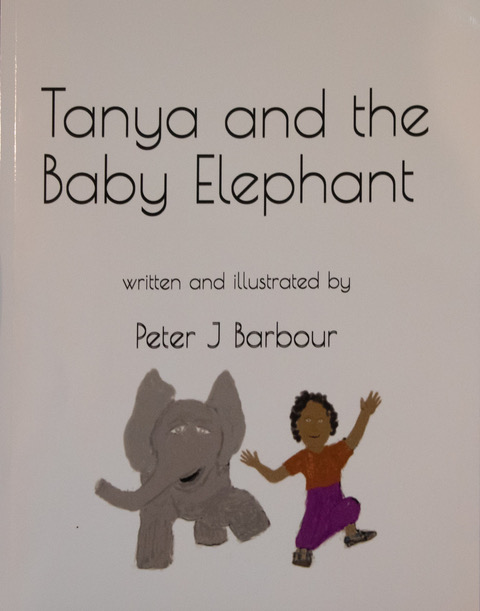Everyone Wants to Write a Book by Connie Vines
February 13, 2017 by A Slice of Orange in category Writing tagged as Connie Vines, Cowboys, Free eBooks, Valentine's Day, writing
Topic for February: Everybody wants to write a book, but most do not.
Writing is hard work . What got you started, and what helps you get through a complete story?
. What got you started, and what helps you get through a complete story?
How many times have you heard someone say, “Someday I’m going to write a book?” Many a time, I”m certain. However, most do not.
Why? Because writing is hard work.
What got me started? Like most children, I loved reading, drawing, and listening to the oral family history spoken by my grandparents. I also like to write stories (not particularly good stories) but for a second grader I did have a handle on the concept of plotting. Thinking back, I unnerved adults with my pointed interview questions, and thoughts about the meaning of life and life-after-death vs death-after-death. Picture: Tuesday Addams wearing glasses and constantly grumbling about receiving yet, another stupid doll instead of a filling cabinet for her birthday.
When, exactly, did I start and complete my first novel?
While I wrote short-stories, nonfiction articles for publication during my twenties, I didn’t get serious about completing a novel until thirties. My children were in school and I worked part-time. That gave me a block of free time to write (vs the scribbling on 3 x 5 index cards when I was cooking dinner or a note pad during a child’s 1 hour nap). I was serving on my church board when the choir soloist told me her sister was a co-president of the Orange County Chapter of RWA (Romance Writers of America). At the time, I hadn’t every thought of writing a romance. I wrote for the YA and middle school market and dabbled in historical fiction, but Shirlee convinced me that the networking and workshops would be beneficial to me. She was correct.
Attending monthly meetings/workshops, exchanging rough drafts with my critique members during lunch, and input from the multi-published members gave me the confidence to persevere. It also made me crawl out of bed after my husband left for work (at 3:00 in the morning) and write before getting my children off to school.
I also discovered that I couldn’t give up my YA stories while I found my footing in a new market.
“So, what did Connie do?” you ask.
I work two novels at once which I still do to this very day.
Crazing making? Yes!
Writing romance isn’t easy. Strong, well-developed characters, good plot (and multiple subplots), sharp dialogue, and emotion-lots of emotion.
Writing is addictive. The story unfolds, the characters present themselves, and away the writer goes into a new Universe.
What makes me complete my novel/story?
The best way for me to describe the feel is I am driven to finish the story. Native Americans say the story chooses the Storyteller. It the Storyteller’s responsibly to bring the story to life.
Happy Reading and Happy Valentine Day!
My Rodeo Romances (Lynx and Brede) are on sale this month (click on my Amazon Author Page link). Even Zombies need love. Indulge in a little Zombie Valentine Romance. For FREE!! Here Today, Zombie Tomorrow on Amazon.com
Connie
0 0 Read moreCreating the Bond of Friendship in Your Novel by Connie Vines
November 13, 2016 by A Slice of Orange in category Archives tagged as Connie Vines, Friendship, OCC Blog, writing, www.novelsbyconnievines.comNearly every book I’ve read has a protagonist. And all of those protagonists were surrounded by several, if not a great many, friends. Within my own stories, my protagonists have quite a few friends. Among those friends, there are usually one or two, maybe three, friends that the protagonist is especially close to. One of my all time favorite series, Vampire Academy by Richelle Mead, follows best friends Lissa and Rose, who act like sisters most of the time. While reading, it’s clear that the two have known each other for a long while, see each other as their closest allies, and see their lives as them against the world. It’s obvious that they’re very close. The question is how does Mead accomplish this? How does any author establish these types of close friendships between characters without blatantly telling the reader?
If you think of your own close friendships, or your best friends, you’ll probably recognize five or more of the following in your relationship with these particular friends –
Understand without speaking.
When you’ve known someone a really long time, or have spent so much time together, you get to know the person so well that you pick up on their habits and quirks and body language. When they bite their lip, you know it’s not that they’re confused, but that the water works are about to begin and it’s time to get them out of there. You understand each other so well that no one needs to say anything.v You might not be able to read each others’ minds, but you understand each other well enough that neither of you needs to say anything. You just do.
Tease each other.
There’s artificial teasing, there’s bully teasing, there’s flirting teasing. But among friends, it’s the way we gently point out each others’ issues and faults without being cruel, it’s how we remind each other of good times, it’s how we connect and communicate. Between best friends, teasing is just another way we talk to each other. There’s no malice, jealousy, anger, or bitterness behind it. It’s often light, fun, laughable, and in good humor. It’s a way to make your friend laugh when they’re on the verge of tears. It’s the way we build each other up when our plans fall through. Teasing is always there, but it never, ever becomes a way of putting each other down.
Rely on each other.
Through good times and bad, friends can always be relied upon to be there and help each other. There are no excuses, there is no distance, there are no events that could prevent two best buds from helping each other out in times of emotional and physical need, and friends rely on each other for that. But friends also rely on each other for comfort, for support, for encouragement, and for all the things it seems the world wants to take away from us.
Seek each other’s advice.
Perhaps more than our parents, teachers, advisors, and mentors, we seek advice from our friends first. This might be a perfectly faulty action, but because friends understand each other and rely on each other, it’s natural that we seek advice from those we know, and who know us, best.
Feel comfortable around one another.
As with all of the above, friends are comfortable with each other enough to seek that advice, tease each other, and rely on one another. Even more than that, friends are comfortable with and around each other that they don’t care if they do something stupid, or say something idiotic. Because they’re comfortable with each other, these things happen and no one cares, because these silly things hardly define us. It’s the same with crying, or showing how truly angry we are, or how hopeless we feel. Friends know each other so well that they be vulnerable and sensitive, and the friend won’t misuse them.
Miss each other when gone.
Probably the greatest understatement of all these, but best friends will miss each other. They might be separated for only a day, maybe one has moved away. But miss each other they will, just the same. The effect this has on each other is anyone’s guess, as everyone reacts differently to separation. Some might become depressed, others might lash out, and some might just have that aching sense of loneliness in their gut that seems like it can’t ever be filled. There is most definitely a reaction, and missing each other is just the surface.
Have similar interests/hobbies/goals/pasts.
Whether they grew up together, or met at summer camp, or took the same art class, friends have similar interests. There’s something that initially drew them together, and in writing a book you can’t just put that aside. It will always be their foundation, and while the foundation can grow, there’s that one point, however small and insignificant in the present, that brought them together.
Grow together as individuals and as friends.
If any relationship is to last and get stronger, growth is a must. Trials, tragedy, celebration, joy; all these add to and change a person, their actions, and how they consider new situations, and this happens in a friendship as well. While going through similar occurrences, if friends cannot grow together, change. Make sure to show the friends, and their friendship, grow through the story.
Don’t judge.
It’s simple. Close friends, who understand, rely, advise, and help each other, just don’t judge. Regardless of what one does, or what the other thinks about a topic, they don’t judge. They accept that they’re individuals with different views and opinions on some things.
Don’t try to change each other.
As I said, friends accept each other. They don’t try to change one another, or mould each other into what their ideal would be, because that would be the farthest thing from acceptance. Friends understand, they don’t judge, and they don’t try to change their friends’ personalities, opinions, views, likes or dislikes, or their hopes and dreams. They accept everything about each other, and celebrate their differences.
Confide everything.
Friends naturally want to talk with each other and discuss the things that happen in their lives, but best friends, as I’m sure you know, will talk about everything. They confide everything in each other without fear of being rejected or judged.
Fights sometimes happen, but making amends occurs quickly.
No friendship is perfect, and because there are two people involved, disagreements are bound to occur. But when fights begin, whatever the topic, close friends will try to move past the argument and come to a conclusion, generally in the form of an agreement or better understanding of one another. They won’t linger on their differing opinions, and will try to make amends as soon as they can. This leads to stronger friendships, and is a way that the friendship can grow and develop.
Can’t imagine life without each other.
Perhaps more than anything else, best friends simply can’t imagine what life would be like if they weren’t together. It’s something they don’t want to think about, and is the last thing they’ll focus on when confronted with the real possibility of lifelong separation. They’ll come up with excuses, plans, arguments, anything that might be able to change the impending separation. They literally can’t picture their life being apart, because their personalities and dreams and emotional selves are so connected.
These are just a basic few things that can comprise a close friendship. Use some, use none, but make sure you really look at the characters you have and focus on showing that closeness where it’s supposed to exist. It offers greater development of both characters, adds to the realism of the plot, and helps with the overall story.
Good luck and good writing!
Connie
0 0 Read moreOh Mercury Retrograde, Are You Here Again? by Connie Vines
September 13, 2016 by A Slice of Orange in category Archives tagged as #Rodeo Romance #the writing process, astrology, Connie Vines, Here Today Zombie Tomorrow, Mercury Retrograde, OCC BlogJanuary 5th to January 25th
April 28th to May 22nd
August 30th to September 22nd
December 19th to January 28th (2017)
Happy Writing,
Connie
Click HERE all my books are on FREE on the Kindle Count Down!!
You Can Edit Your Own Work by Connie Vines
July 13, 2016 by A Slice of Orange in category Archives tagged as Connie Vines, editing, Kindle Unlimited. Amazon, OCC Slice of Orange, revision, Self-editing, Selling your novel, writing- When you sit down to do your revision, you must first get organized both physically and mentally.
Brain Food for Writers by Connie Vines
June 13, 2016 by A Slice of Orange in category Archives tagged as #Cowboys, Brain Food, BWL Ltd., Connie Vines, OCC Blog, OCC Slice of Orange It wasn’t until I completed this blog post that I realized that my title, well. . .carried an unintended double meaning.
It wasn’t until I completed this blog post that I realized that my title, well. . .carried an unintended double meaning.
My featured novella this month — Here Today, Zombie Tomorrow– is a Zombie story. And today’s topic is brain food. Well, brain food for writers, anyway.
On deadline? Obsessed with your current storyline? Forfeiting sleep, exercise, and nutrition to reach the moment you can type the words The End on the final page of your novel?
Here are a list of grazing foods that you can keep on hand. High in protein, easy prep, and tasty.
Single serve, or 5 ounces of nonfat cottage cheese. 3 grams more protein than a typical serving of Greek yogurt.
Hard boiled Egg. No longer shunned due to claims of too high cholesterol, we can enjoy in moderation. You can boil yourself or purchased peeled and packaged at the market.
Peanut butter. Scoop your own or purchase in single packets, smear on a banana or apple slices.
Roasted chickpeas ( I love hummus and falafel). 120 cals per serving, 5 gram of protein and fiber.
To prep yourself rinse and drained chickpeas in a bowl with olive oil. Add chili powder, cumin, salt, and pepper. Oven bake at 425 degrees for 45 mins.
Greek yogurt
Turkey roll ups. Nitrate free deli turkey breast with a squirt of mustard, a slice of tomato, and some lettuce. Add red pepper slices and baby carrots. Roll and store in a plastic container or foil.
Hummus. Made from chickpeas, tahini, and olive oil, hummus is a healthy mix of protein and fiber. Use it as a dip for carrots, tomatoes, red pepper, and cucumber slices,
100-calorie almond packets.
String cheese.
Happy Writing & Reading.
Connie
0 0 Read moreAffiliate Links
A Slice of Orange is an affiliate with some of the booksellers listed on this website, including Barnes & Nobel, Books A Million, iBooks, Kobo, and Smashwords. This means A Slice of Orange may earn a small advertising fee from sales made through the links used on this website. There are reminders of these affiliate links on the pages for individual books.
Search A Slice of Orange
Find a Column
Archives
Featured Books
ALASKA INFERNO
Can a series of wildfires lead to true love under a midnight sun?
More info →TANYA AND THE BABY ELEPHANT
Tanya is stuck at home. Can a baby elephant make her less lonely?
More info →WINTER WISHES: A REGENCY HOLIDAY ROMANCE ANTHOLOGY
Stories that will sweep you away . . .
More info →GAME TOWN
Follow Skylar Drake to Hollywood parties where the forbidden is accepted and games played are for keeps.
More info →A SOLDIER’S ITALIAN CHRISTMAS
A soldier and a nun discover forbidden love in war-torn Italy during the winter of 1943.
More info →Newsletter
Contributing Authors
Search A Slice of Orange
Find a Column
Archives
Authors in the Bookstore
- A. E. Decker
- A. J. Scudiere
- A.J. Sidransky
- A.M. Roark
- Abby Collette
- Alanna Lucus
- Albert Marrin
- Alice Duncan
- Alina K. Field
- Alison Green Myers
- Andi Lawrencovna
- Andrew C Raiford
- Angela Pryce
- Aviva Vaughn
- Barbara Ankrum
- Bethlehem Writers Group, LLC
- Carol L. Wright
- Celeste Barclay
- Christina Alexandra
- Christopher D. Ochs
- Claire Davon
- Claire Naden
- Courtnee Turner Hoyle
- Courtney Annicchiarico
- D. Lieber
- Daniel V. Meier Jr.
- Debra Dixon
- Debra H. Goldstein
- Debra Holland
- Dee Ann Palmer
- Denise M. Colby
- Diane Benefiel
- Diane Sismour
- Dianna Sinovic
- DT Krippene
- E.B. Dawson
- Emilie Dallaire
- Emily Brightwell
- Emily PW Murphy
- Fae Rowen
- Faith L. Justice
- Frances Amati
- Geralyn Corcillo
- Glynnis Campbell
- Greg Jolley
- H. O. Charles
- Jaclyn Roché
- Jacqueline Diamond
- Janet Lynn and Will Zeilinger
- Jaya Mehta
- Jeannine Atkins
- Jeff Baird
- Jenna Barwin
- Jenne Kern
- Jennifer D. Bokal
- Jennifer Lyon
- Jerome W. McFadden
- Jill Piscitello
- Jina Bacarr
- Jo A. Hiestand
- Jodi Bogert
- Jolina Petersheim
- Jonathan Maberry
- Joy Allyson
- Judy Duarte
- Justin Murphy
- Justine Davis
- Kat Martin
- Kidd Wadsworth
- Kitty Bucholtz
- Kristy Tate
- Larry Deibert
- Larry Hamilton
- Laura Drake
- Laurie Stevens
- Leslie Knowles
- Li-Ying Lundquist
- Linda Carroll-Bradd
- Linda Lappin
- Linda McLaughlin
- Linda O. Johnston
- Lisa Preston
- Lolo Paige
- Loran Holt
- Lynette M. Burrows
- Lyssa Kay Adams
- Madeline Ash
- Margarita Engle
- Marguerite Quantaine
- Marianne H. Donley
- Mary Castillo
- Maureen Klovers
- Megan Haskell
- Melanie Waterbury
- Melisa Rivero
- Melissa Chambers
- Melodie Winawer
- Meriam Wilhelm
- Mikel J. Wilson
- Mindy Neff
- Monica McCabe
- Nancy Brashear
- Neetu Malik
- Nikki Prince
- Once Upon Anthologies
- Paula Gail Benson
- Penny Reid
- Peter J Barbour
- Priscilla Oliveras
- R. H. Kohno
- Rachel Hailey
- Ralph Hieb
- Ramcy Diek
- Ransom Stephens
- Rebecca Forster
- Renae Wrich
- Roxy Matthews
- Ryder Hunte Clancy
- Sally Paradysz
- Sheila Colón-Bagley
- Simone de Muñoz
- Sophie Barnes
- Susan Kaye Quinn
- Susan Lynn Meyer
- Susan Squires
- T. D. Fox
- Tara C. Allred
- Tara Lain
- Tari Lynn Jewett
- Terri Osburn
- Tracy Reed
- Vera Jane Cook
- Vicki Crum
- Writing Something Romantic
Affiliate Links
A Slice of Orange is an affiliate with some of the booksellers listed on this website, including Barnes & Nobel, Books A Million, iBooks, Kobo, and Smashwords. This means A Slice of Orange may earn a small advertising fee from sales made through the links used on this website. There are reminders of these affiliate links on the pages for individual books.



















































